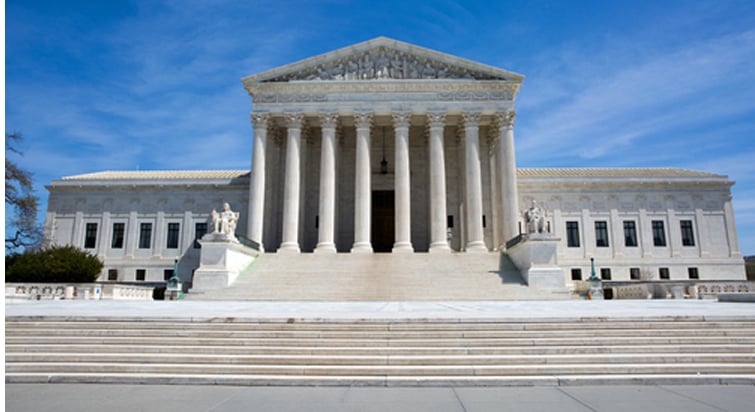In case that could affect Mueller defendants, Supreme Court considers 'separate sovereigns doctrine'

Shutterstock
The U.S. Supreme Court on Thursday appeared unlikely to overturn a doctrine that allows state and federal prosecutions for the same crime.
At least five justices appeared ready to uphold the “separate sovereigns doctrine,” according to coverage of the oral arguments by USA Today, the Washington Post, the Wall Street Journal, NPR, SCOTUSblog and the New York Times. The doctrine holds that the two prosecutions do not violate the double jeopardy clause because state and federal governments are separate sovereigns.
The case could affect convicted defendants in special counsel Robert Mueller’s investigations who are pardoned by President Donald Trump and then tried in state courts.
Justice Brett M. Kavanaugh was among a group of justices who noted the importance of precedent upholding the separate prosecutions. To overturn precedent, he said, the prior decisions must be “grievously wrong, egregiously wrong.” In that regard, he sided with Justice Elena Kagan, who said courts resist overturning long-established precedent “just because we think we can kind of do it better.”
Kavanaugh and Justice Samuel A. Alito Jr. both questioned whether overruling the doctrine would mean the United States could not prosecute terrorists who are acquitted in foreign prosecutions.
On the other side were liberal Justice Ruth Bader Ginsburg and possibly Justice Neil M. Gorsuch, who noted a “proliferation of federal crimes” that can be prosecuted any time the feds are “unhappy with even the most routine state prosecution.”
The court is considering the issue in the case of Terance Gamble, who served a one-year sentence under Alabama law for being a felon in possession of a firearm. He was also charged with the same crime under federal law and received a sentence of nearly four years as a result of a conditional guilty plea that allowed him to raise the double jeopardy issue on appeal.
Some experts say concerns about an inability to prosecute Mueller defendants may be misplaced, according to NPR.
Columbia law professor Daniel Richman told NPR that a defendant such as Paul Manafort is “sort of a one-man offense generator,” meaning state prosecutors in such a case could likely find crimes that haven’t already been charged. Manafort was convicted of bank and tax fraud in one federal trial, and he pleaded guilty to conspiracy in a second federal case.
University of California at Berkeley law dean Erwin Chemerinsky also noted that many federal and state crimes require proof of different elements, allowing prosecutors to claim a second prosecution isn’t barred.
Related articles:
ABAJournal.com: “Supreme Court to weigh double jeopardy issue that could impede state cases after presidential pardon”
ABAJournal.com: “Chemerinsky: Another blockbuster Supreme Court term is ahead”



